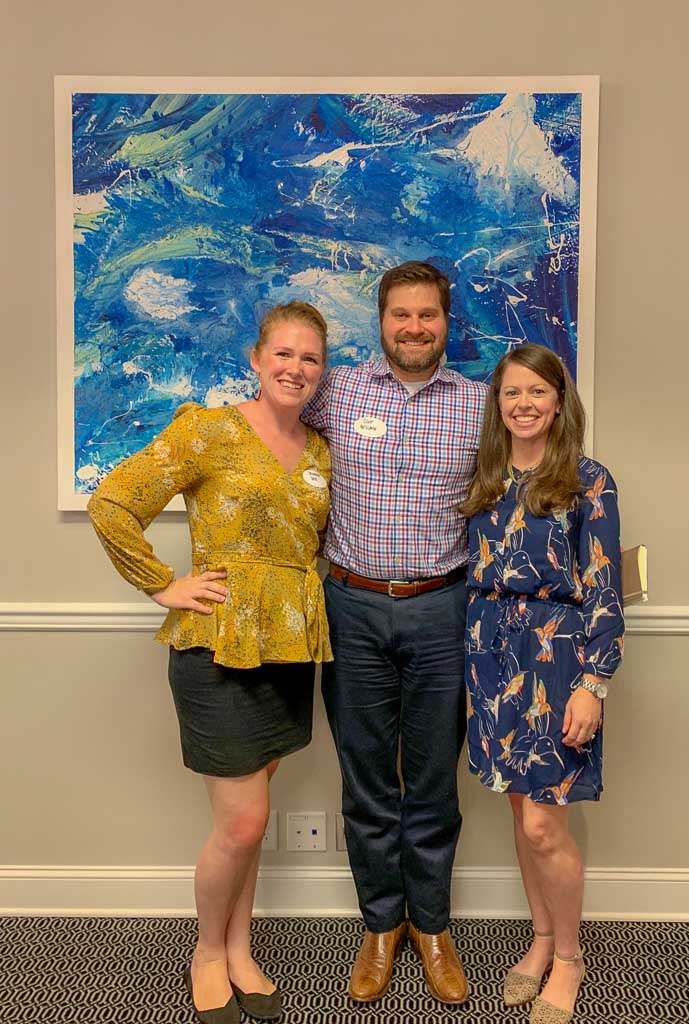Expertise overflows when hotel brands come together to talk marketing. That was the scene set at the French Quarter Inn where the Charleston Travel & Hospitality Marketers Meetup hosted a lunch to discuss how both local and international hotel brands approach marketing strategies. As the founder and travel SEO specialist, Galileo Tech Media brought together the Director of Digital Client Services Kim Moore at Marriott International, the Director of Revenue Scott Neslage from Wild Dunes Resort and Senior Marketing Strategy Manager Jennifer Jost from Charlestowne Hotels. Each professional shared their company’s unique marketing approach, what works for their corporate structure and qualities that makes them want to work with vendors.
Varied and Successful Approaches
As 3 different companies, each professional brought a unique and successful marketing approach to their business. At Marriott, Moore brings a strong digital approach that involves a worldwide team working to promote over 7,000 hotels in 30 different brands.
“The marketing we do,” says Moore, “is really about the guests. And we can’t forget this.” This sentiment was shared by all three brands, but Marriott, as the largest of the three companies approached guest loyalty in a different way. This includes Marriott’s new rewards program, Bonvoy that launched in February 2019 and combined several brand loyalty programs into one with the goal to illustrate that travel enriches members and the world.
By contrast, Neslage of Wild Dunes Resort explained that his company’s marketing approach is more driven by giving guests brand-specific incentives. Rather than saving up membership points as a Bonvoy member might, he works to encourage guest loyalty with experiences that enrich the travel experience in the moment and while they are at the hotel.
“The customer experience drives future marketing,” explains Neslage.
Whether it’s free Wi-Fi, a welcome cocktail, an unforgettable experience or something else, those events and offerings encourage guests to come back again and again. This style of on-site marketing includes every aspect of the physical hotel, including the grounds and decorations, employee uniforms and attitude and more.
Planning Makes Perfect
Each of the travel marketing professionals emphasized the importance of building a brand-specific marketing plan well in advance. Analysis and research of past campaign successes, local events and happenings, online presence and reach, and more all help to influence future marketing plans. Planning as much as a year in advance allows a marketing approach to have big picture goals with a step-by-step path to reach them. But with any good plan, flexibility is key, especially with hotels that rely on the weather to spark guests to visit, like a ski resort or property on the beach.
“Planning is sometimes about being proactive and not reactive,” says Jennifer Jost from Charlestowne Hotels. This includes looking closely at missed opportunities or times when bookings are down and carefully analyzing what can be done differently in the next year or season. “It’s about rethinking and planning to be flexible.”
When it comes to planning though, often the on-site teams knows the market best, and so they are perfectly positioned to help influence the marketing plan. According to Moore, “The hotel general manager is the North Star” when it comes to driving a localized marketing plan.
Building Vendor Relationships
Successfully marketing a hotel or property takes a team of professionals, no matter if you are marketing numerous brands to a worldwide audience or a single property. Either way, building vendor relationships is essential.
A successful vendor relationship will save a hotel time and stress by working independently, being flexible and staying organized. The relationship is not maintained with daily check-in calls, rather the affiliation is strengthened through ease and effectiveness. Vendors that meet or exceed deadlines and expectations independently are invaluable to a hotel’s marketing department because it keeps the annual plan on task while allowing the hotel and marketing professionals to focus their goals.
When it comes to vendors, bigger doesn’t always mean better. A smaller vendor can often work as an extension of the marketing team, catering their work to what the company needs and providing more direct service than a bigger vendor could. This makes them easier to work with and the relationship and marketing approach stronger overall.
To learn more about Galileo’s Charleston Travel Marketing Professionals events, follow us on Facebook or here on our website.




